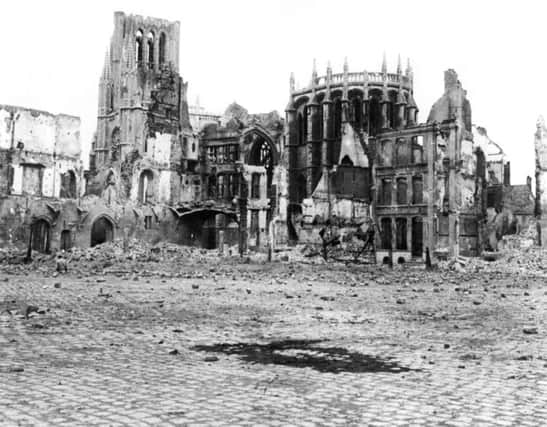Words from hell that live on for a new generation


George Gallirhir was a 35-year-old former miner from Durham who was serving with the Northumberland Fusiliers in the summer of 1917.
He died at Passchendaele, but the tribute he wrote for Mary, his wife, on their fifth anniversary, survives. It was the last letter she received from him.
Advertisement
Hide AdAdvertisement
Hide Ad“Yet all the while I must in France remain, tho’ dear are many comrades here to me, the hours which most my weary heart sustain, are those I spent with you, in memory,” he wrote.
“Some day, who knows how soon, I will return; once more we’ll wander ’neath the evening sky. Or by the fireside sit, perchance we’ll turn, our minds to separations, you and I.”
The poem was passed down through the family until they came to George’s great-granddaughter, Nicola Hudson, 20 years ago. She is now also 35.
She and her mother, Valerie, will be among 4,000 descendants of the war dead who be in Ypres in Belgium to mark the centenary of Passchendaele.
Advertisement
Hide AdAdvertisement
Hide AdMs Hudson said the family had been shaped by the death of her great-grandfather. “He went over to fight not only in defence of the country but to protect his family,” she said.
Mary was widowed with a young daughter and son.